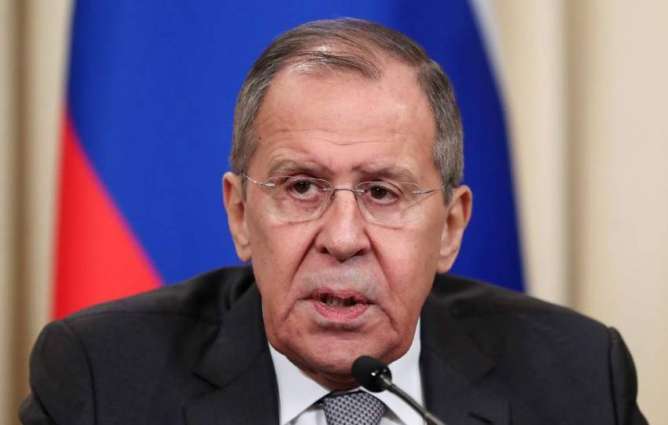Russia is aware of large financial streams poured by Lithuania and Poland into keeping the Belarusian opposition protests ongoing, in addition to instructions provided to extremist-minded protesters on how to produce explosive substances, Russian Foreign Minister Sergey Lavrov said on Wednesday
MOSCOW (Pakistan Point News / Sputnik - 12th November, 2020) Russia is aware of large financial streams poured by Lithuania and Poland into keeping the Belarusian opposition protests ongoing, in addition to instructions provided to extremist-minded protesters on how to produce explosive substances, Russian Foreign Minister Sergey Lavrov said on Wednesday.
According to Lavrov, the Belarusian opposition is being intensively financed from abroad to continue the protests and stand by their uncompromising demand of power change.
"We know that not only streams of money are coming from Warsaw and Vilnius to finance these protests, including protests organized by criminal circles seeking power provocations, but also instructions are being disseminated via social media. We have seen these instructions, they show how to produce incendiary mixtures and explosive substances," the Russian foreign minister said at a press conference.
Lavrov reiterated Moscow's call on third countries to refrain from interference in Belarus' domestic affairs and on the Belarusians to engage in a constructive [and] inclusive political dialogue.
Mass protests began in Belarus after the presidential election on August 9, which, according to the official results, incumbent President Alexander Lukashenko won in a landslide, securing himself a sixth consecutive term in office. The opposition refused to recognize the results, claiming electoral fraud. Security officers used force in suppressing the protests. Three people were officially confirmed dead as a result. Lukashenko's supporters have also organized rallies in his support.
Protests of various population segments women, retired persons, students, doctors and people with disabilities, among others � are regularly being detained in Minsk and other Belarusian cities. There are also large-scale Sunday marches that could be joined by any protesters. As a rule, these demonstrations result in multiple arrests. According to the Belarusian non-governmental human rights center Viasna, more than 1,000 people were detained during the protest this past Sunday alone.




